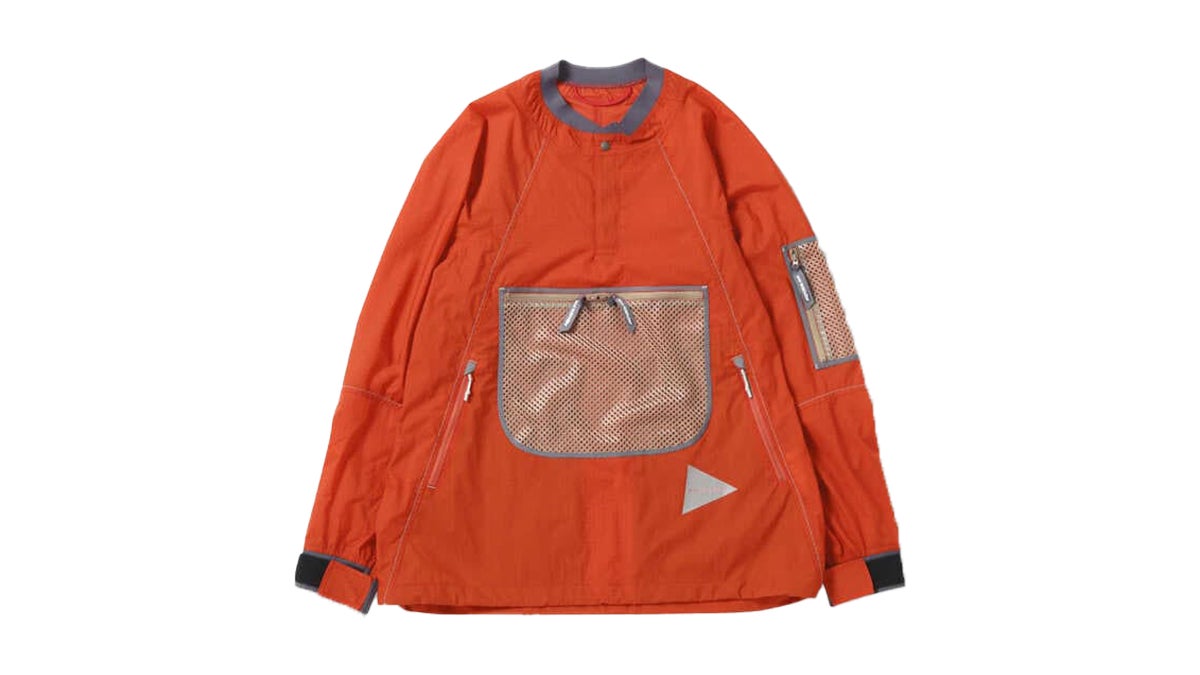Products You May Like
Usually, you don’t go ultralight for fashion’s sake. The majority of lightweight gear—whether it’s a nearly see-through windshirt or a pair of clown-shoe-shaped trail runners—prioritizes function above all else. Fashion, if it comes into play at all, seems a distant second. That’s the case in the United States, at least. For the ultralight community in Japan, though, priorities are a little different.
The worlds of fashion and outdoor recreation have long been intertwined in Japan. Industry stalwarts like The North Face and Columbia capitalize on this: Both offer Japanese-exclusive collections that are heavy on vintage and streetwear styling. Japanese brands that distribute internationally, like Montbell and Snow Peak, tailor their offerings around this reality as well. While Snow Peak is known mainly for titanium stoves and cookware in the United States, the company offers a much larger—and more imaginative—selection of products in its home country. Think tents, sleeping bags, bamboo camp furniture, and wool kimono jackets.
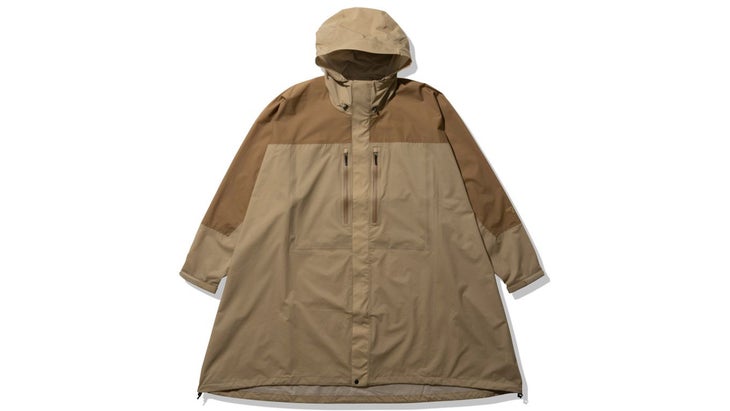
Just like in the U.S., ultralight hiking has boomed in Japan over the past decade. Many of the products most popular among Japanese ultralighters will be familiar to gearheads anywhere: frameless backpacks, merino wool apparel, and Dyneema tarps and tents.
Riccardo Parenti is an Italian backpacker, mountaineer, and self-professed gear nerd who has lived in Japan for 12 years. As the cottage outdoor industry has blossomed in Japan, he’s been there to test gear and watch the ultralight community expand.
“The first difference to consider is that American ultralight has gained popularity alongside thru-hikes,” Parenti says. “But in Japan, 98% of people are weekend hikers.” Rather than gear that’s purpose-built for long hikes far away from civilization, he says Japanese hikers are looking for ultralight products they can wear during weekday commutes and everyday life.
From an outsider’s perspective, this is easy to spot on brand websites and Instagram pages. Product photos for American brands are nearly always shot on-trail, worn by smiling hikers skipping down paths or admiring an alpine view. In Japan, ultralight gear is just as likely to be shot draped across a dour-faced model on a Tokyo street. To the American eye, it may come across as fashionable posturing, but Parenti thinks it goes beyond that.
“The concept of ultralight was already part of Japanese culture, in everyday life,” he says. “It’s not just about fashion, it’s the essence of Japan: visually pleasing, extremely functional yet minimal.”
Kei Tsujioka, founder of Atelier Blue Bottle, agrees with Parenti’s assessment. “American ultralight culture is great,” he says. “We are making an updated version of it for Japan.”
His Tokyo-based brand offers trendy-looking packs and collared shirts that, at their core, are technical goods for ultralight hikers. Recent additions to the brand’s lineup include jackets and pants made from Polartec Alpha Direct and merino wool—two fabrics that are highly sought-after for their light weight and performance. Tsujioka says his brand is the only one he knows of that combines the two fabrics in one garment.
“I don’t design for fashion consciously—material is the most important thing,” he says. “It’s for the outdoors, but it would be great if it could be used in the city, in the mountains, at home, or at work, right?”
For ultralighters in the States, finding Japanese gear can be a hassle. Most don’t distribute their gear to overseas retailers, so shoppers will have to navigate each brand’s webpage, pony up for international shipping charges, and deal with delays in customs. Plus, Japanese ultralight brands are every bit as popular as their American counterparts. Limited releases, lottery systems, and products that sell out in a matter of days are not unusual. The ordeal can be worthwhile, though. Petite hikers of any gender will likely find that Japanese sizing fits them better. And for the fashion-conscious, Japanese gear-makers are sure to offer something different.
Here are five Japanese brands that are worth a closer look.
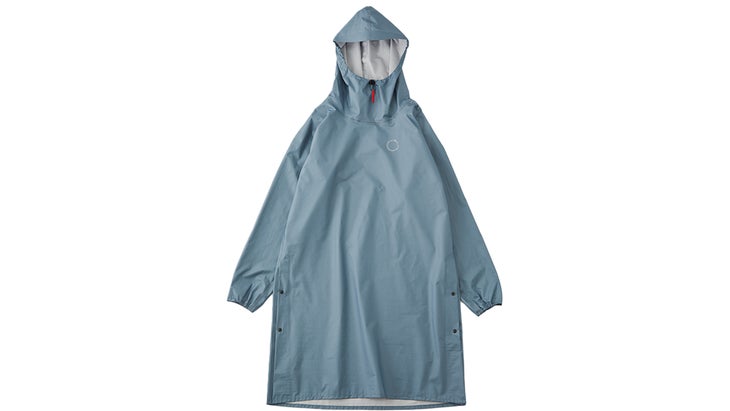
Yamatomichi
According to Parenti, Yamatomichi is Japan’s leading ultralight brand in terms of popularity and demand. Started in 2011, the Kamakura-based gear-maker offers backpacks, apparel, and sacoches—Japanese-style handbags that the company has made ultralight-worthy using X-Pac fabric. Due to high demand, Yamatomichi sells products in small batches via a lottery system, and most products sell out nearly immediately. Check out the All Weather Long Hoody, a poncho-length shell made of Pertex Shield Air, designed to provide enough coverage to forego rain pants and weighing in at only 5 ounces in men’s medium.
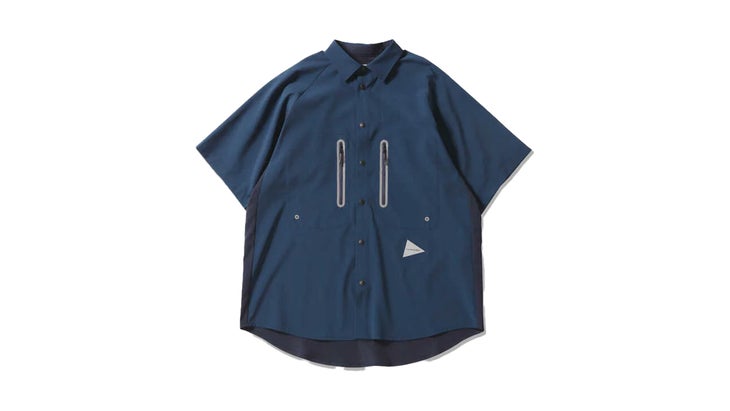
And Wander
The brainchild of Keita Ikeuchi and Mihoko Mori, two designers with a background in high fashion, And Wander is perhaps the ultralight brand that takes the most stylistic license with its product. The label does offer staples like packs, synthetic midlayers, and climbing pants, but has more offbeat pieces like Cordura dresses, and extendable shell jacket-ponchos too. Look for the Tech Short Sleeve Shirt, a collared polyester hiking shirt that offers UV protection and a distinctive style.
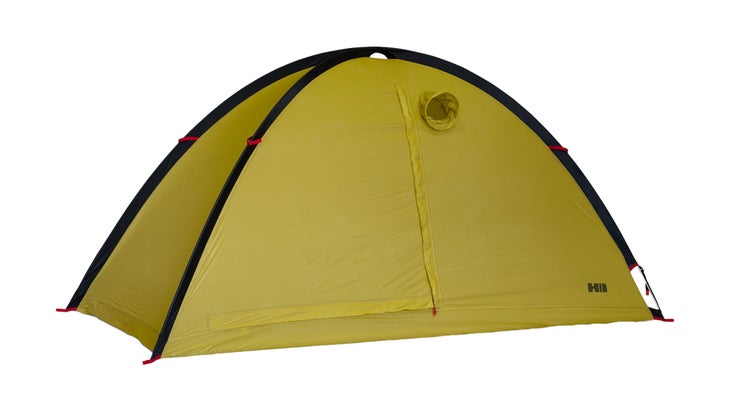
Heritage Tents
Founded in 1997 by mountaineer Hyundai Omote, Japanese hikers know Heritage for its alpine-ready dome tents, often constructed of green nylon with black tentpole sleeves. Today, the Azumino-based brand continues to make all of its tents in-house with a small team of alpinists. The Crossover Dome, a freestanding one-person dome tent with a unique mix of features, is worth hunting down. Its single-wall design has steep walls and two ventilation ports to offset condensation and weighs in at 19 ounces—competitive with the lightest freestanding tents available in the US.
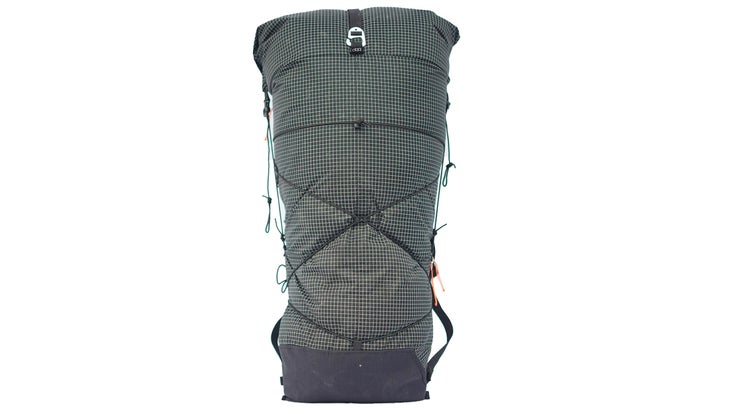
Blooper Backpacks
Blooper Backpacks is among the newest gear-makers on the Japanese ultralight scene. Founder Toru Ueda gained an Instagram following thanks to his hyper-minimalist pack designs, which range from 15 to 45 liters in capacity and are designed around a distinctive top-heavy profile. The Llew 45 pack, one of the brand’s most customizable offerings, is a 17-ounce frameless pack with eight a la carte options, from fabric choices like ripstop nylon, Xpac, and Dyneema to colored zippers and optional shoulder and hipbelt pockets.
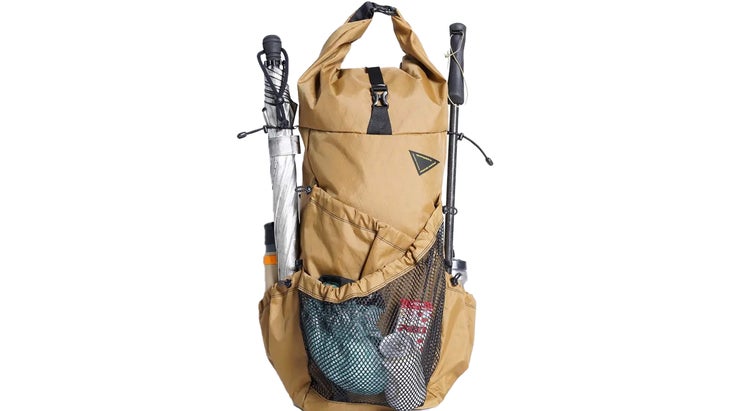
Atelier Blue Bottle
Founded in 2013 by Kei Tsujioka, Atelier Blue Bottle is a Toyko-based cottage manufacturer known for its backpacks and apparel. Look for the flagship PAC03 backpack, constructed of X-Pac and Dyneema, which is easily identifiable thanks to the diagonal slant of its zippers and back pockets.
